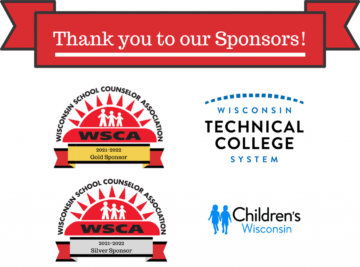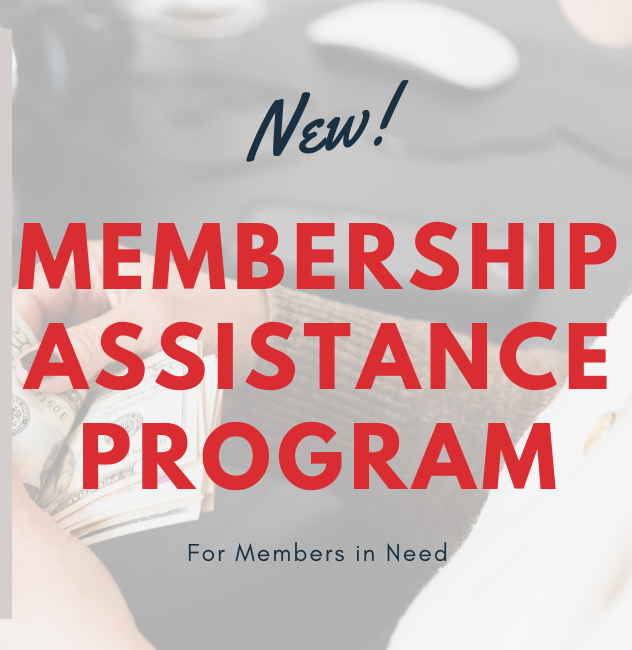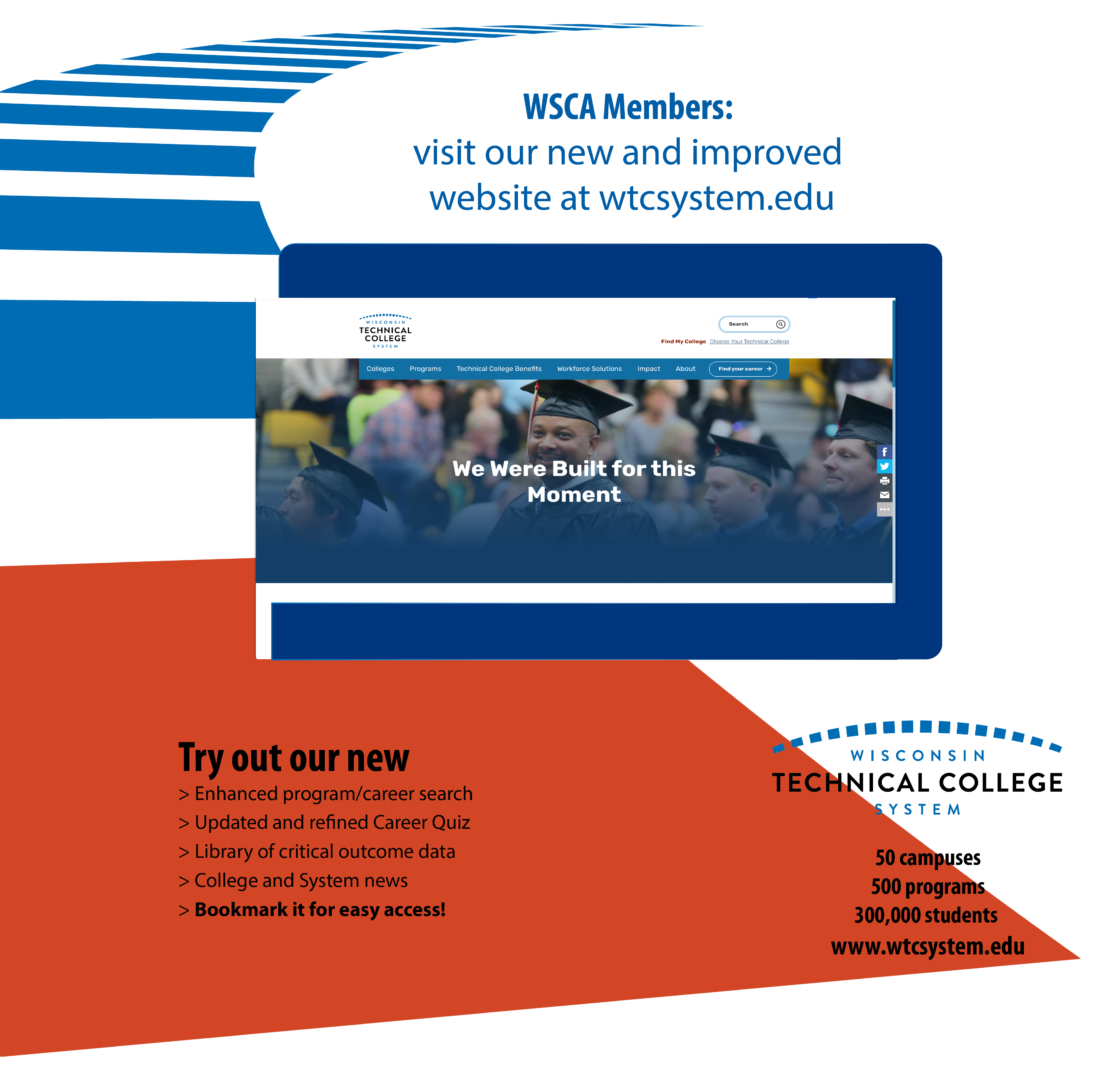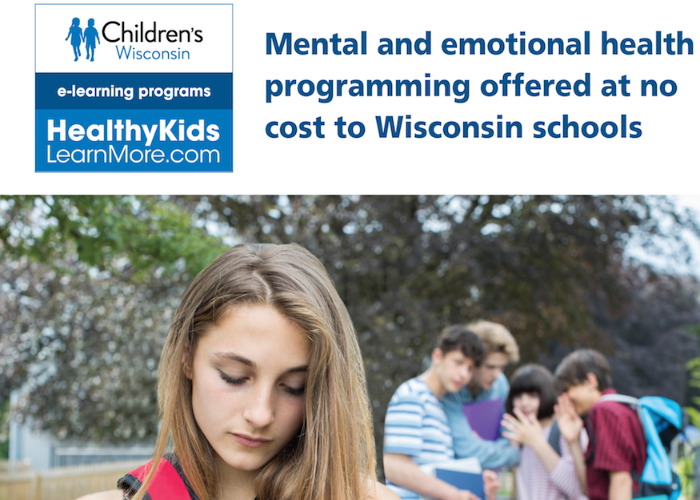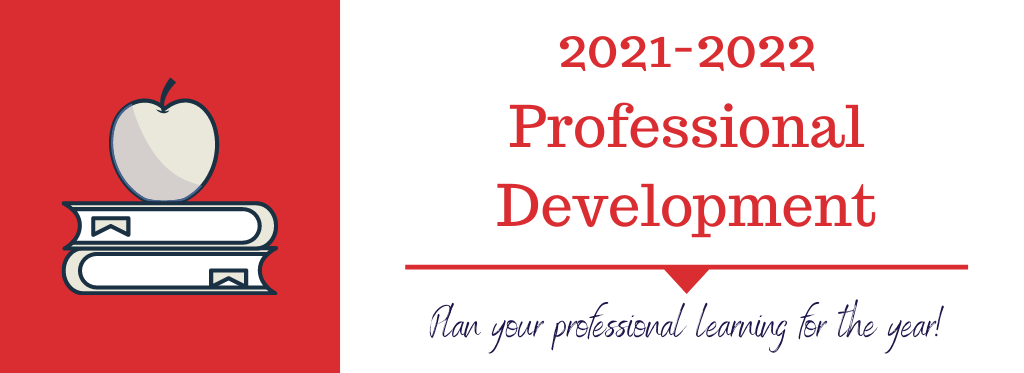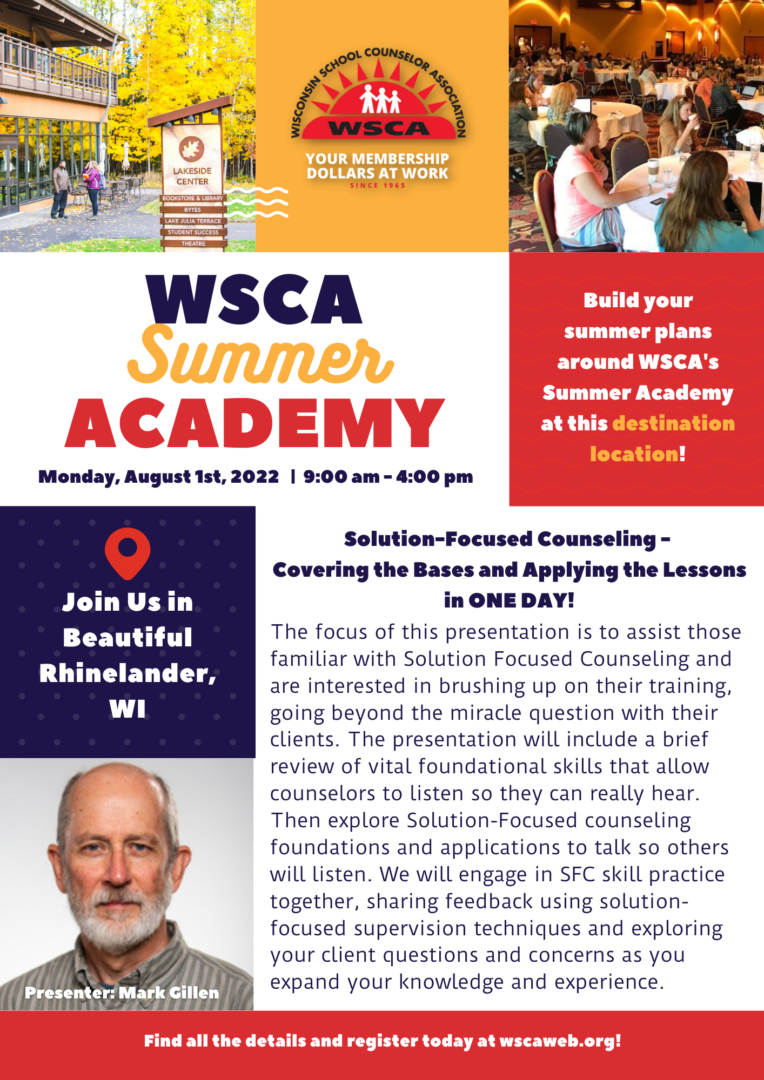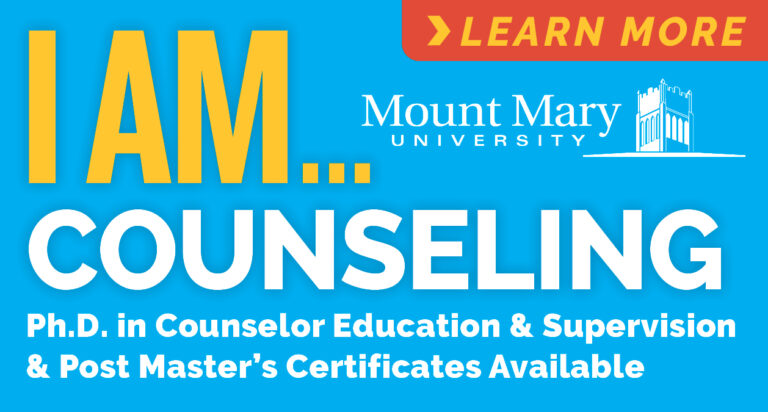May 2022

A Message from the WSCA Executive Director

 Emotional Well-Being For All
Emotional Well-Being For All
Last August, I had the opportunity to provide feedback on the DPI Wisconsin School Mental Health Framework, and I am reflecting on that experience with this month’s WSCAlink theme.
One of my recommendations for the framework was to highlight and encourage the concept of Emotional Well-Being. Mental  health is on the spectrum of our emotional well-being, but the term is more holistic of all the variables that impact our mental health. Supporting our Emotional Well-Being also allows us to be more preventive and proactive. Julia Cook supported this philosophy in her recent webinar for WSCA when she gave us a sneak peek at her new upcoming project promoting mental well-being.
health is on the spectrum of our emotional well-being, but the term is more holistic of all the variables that impact our mental health. Supporting our Emotional Well-Being also allows us to be more preventive and proactive. Julia Cook supported this philosophy in her recent webinar for WSCA when she gave us a sneak peek at her new upcoming project promoting mental well-being.
The Center for Disease Control has created a priority called “Healthy People 2030”. One of its five overarching goals is related explicitly to Social Determinants Of Health (SDOH), which focuses on “Creating social, physical, and economic environments that promote attaining the full potential for health and well-being for all.”
SDOH are the “conditions in the environments where people are born, live, learn, work, play, worship, and age that affect a wide range of health, functioning, and quality-of-life outcomes and risks. Just promoting healthy choices won’t eliminate these and other health disparities. Instead, public health organizations and their partners in sectors like education, transportation, and housing need to take action to improve the conditions in people’s environments.”
SDOH can be grouped into five domains shown in this graphic:
As you are taking care of your emotional well-being and continue to support your students and schools, it is helpful to remember many factors impact mental wellness and that we should also be considering our overall emotional well-being.
You can learn more about the DPI Mental Health Framework at https://dpi.wi.gov/sspw/mental-health/framework,
~Stacy Eslick
A Message from the WSCA Board of Directors

It’s that time of year when the finish line quickly approaches, and we close out the 2021-2022 school year by preparing students for the summer, getting students set up to succeed at their next levels, and for some of a group of seniors off to start the next phase of their lives.
As we sprint to the end of the school year, your WSCA Leaders are committed to supporting you in the incredible work you do. Therefore, we are preparing an incredible slate of opportunities for you to learn and connect during the 2022-2023 School Year. We hope you will find the chance to learn, grow, and celebrate with us at one of these many opportunities.
As we continue leadership’s commitment to connecting to all areas of our state, we are excited to host our summer academy at Nicolet College in beautiful Rhinelander on August 1st. Join us for potential workshops on Anxiety and Mental health and a WSCPAR and RAMP Camp. This is an exciting opportunity to network and kick off the upcoming school year.
Last November, we were excited to reunite in Wisconsin Dells. Next fall, we’d hope to welcome you all back to Wisconsin Dells for our annual state conference on November 2-4. The challenges that we face and rise from to support our students every day prove that we are deeply “Rooted in Resilience.” In addition to a slate of preconference and standard conference sectionals that will support the incredible work you do, we are honored to welcome Molly Hudgens and Dr. John Hodge as our Keynote Speakers.
February 5th-February 9th, 2023, we will celebrate with our colleagues from across the nation as we recognize National School Counselor Week. WSCA will once again host our NSCW Breakfasts to provide an opportunity to network and advocate for our profession and celebrate the amazing things School Counselors do for their students and their schools.
In addition to these events, we hope you will join us in our ongoing connection opportunities throughout the year. Consider joining one of our many special interest groups that meet once a month. These groups are great opportunities to network with your colleagues from across the state with similar interests.
I look forward to learning beside you and connecting with you at these events. I wish you and your students an incredible end of the 2021-2022 school year. This year has indeed been a journey. Please enjoy these last few weeks, and take time to breathe and enjoy time supporting your students. I hope you all have an incredible summer and get an opportunity to rest, reset, and recharge.
Be Well,
~Russ Nelson
Children’s Mental Health Week: May 2nd-6th, 2022
It’s Children’s Mental Health Awareness Week! #MakeTheEffort and reach out to a young person in your life. #ConnectionSavesLives.
Governor Evers has also proclaimed Thursday, May 5, as Children’s Mental Health Awareness Day.
Find shareable content and details at https://children.wi.gov/Pages/ChildrensMentalHealthWeek2022.aspx

Feature Article – Supporting Student Mental Health Through Collaboration and Community Partnerships
Supporting Student Mental Health Through Collaboration and Community Partnerships
Christine Voice
Kohler High School
Daily, school counselors see the impact the past two years have had on our students. The data confirms what our lived experiences tell us:
- More than 1 in 3 high school students had experienced persistent feelings of sadness or hopelessness in 2019, a 40 percent increase since 2009.
- In 2019, approximately 1 in 6 youth reported making a suicide plan in the past year, a 44% increase since 2009
- Rates of children’s emergency department visits related to deliberate self-harm increased 329% between 2007 and 2016.
- Deaths by suicide among youth increased by over 30% between 2014 and 2017.
The data is clear. Students need the help of their school counselors- especially through curriculum, responsive services, and system support. As counselors, we must also utilize our community-based resources and the expertise of those beyond our brick and mortar.
Use data to drive partnerships
School counselors can utilize state-wide and national adolescent data to understand the needs of our students. It’s also important to utilize data specific to our school community using surveys like the Youth Risk Behavior Survey, Culture and Climate surveys, and a plethora of other tools available through state and private agencies. Knowing the needs of your student population is the first step in seeking opportunities to provide curriculum, tools, and resources through intentional partnerships.
Once you’ve identified the needs of your stakeholders, it’s important to find programs or structures that would best support your population and their unique needs.
Create Systemic Levels of support
- Staff Professional Development
Many nonprofit organizations in our state offer teacher & faculty presentations for free or low-fee. Think GSAFE, Rogers Behavioral Health, Mental Health America, and your own local businesses.
- Partner with teachers; embed in existing curriculum/assignments
Utilize your relationships with teachers and their own standards to incorporate project-based learning in the classroom setting. This can help prevention as well as increase the number of students served. DPI provides a list of SEL curriculum
- Utilize online mental health screeners
School counselors can provide screeners or direct students and families on where to self-screen. Mental Health America has online screeners, and many districts utilize targeted screening data points to identify students in need of a higher level of care.
Engage your school community beyond the classroom
- Parent & Staff book reads
Guided parent or faculty book reads can be an easy way to engage stakeholders in person or virtually on topics that might be impacting your community. When we realized our students were not getting the recommended hours of sleep, we engaged a local pediatrician in co-facilitating a virtual conversation based on the book, Why We Sleep by Dr. Matthew Walker
- Student and Parent mini-sessions
Offer brown bag sessions for students or coffee with the counselor for parents framed around specific topics like stress management techniques, developing a manageable school-life schedule, or understanding the college admission process.
- Staff Professional Development days
Use data to show your administration the student mental health crisis and opportunities to educate and support our staff. Compassion Resilience and burnout prevention are so important. Knowing our team directly impacts the student experience and student connection to adults at school is a protective factor; we must advocate for the faculty in our buildings.
Utilize community professionals and organizations
Most times, it can be easier to identify the problem than to build systems of support for our counseling programs and students. However, it is crucial we don’t do the work alone. There are numerous organizations and groups of professionals available and willing to help. Think outside the box when seeking opportunities for collaboration:
- Nonprofit Organizations
Share opportunities for summer programs, “non-traditional” after-school clubs, and community-based events with your families. You don’t need to create them to share them. Also, seek opportunities to partner for staff development opportunities when local non-profit organizations are hosting more extensive training or events
- Medical & mental health professionals
Many local mental health and family practice offices will offer parent sessions, student resources, information booths, etc.
- Government agencies & other content experts
Continue to reach out to your legislatures and state/local representatives to raise awareness of the student needs as well as the impact of your own school counseling programs. Funding is crucial.
- Parents/families/local businesses
Consider your students’ parent populations; perhaps they have professional expertise they could share, or their employer may be willing to fund or donate to different events/curricula. Utilize things like a counselor newsletter to share and ask.
You Spoke, We Listened
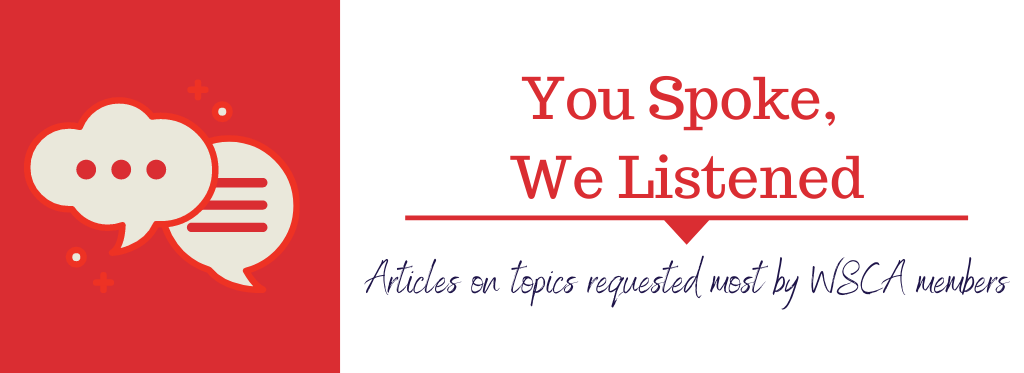
![]()
DPI Disproportionality Technical Assistance Network
The Network hosted an amazing FREE Educational Equity Leadership Series this school year! Network staff realized it is not always easy for educators to step away from their responsibilities to attend the sessions during the day. Because of this, all sessions were recorded and are available in their online platform to all who registered. Note: The videos are for educational purposes only.
In order to access them, you must have an account set up on Sutra.
All recordings can be found under this link: https://EdEquitySeries2022.sutra.co
Under the presenter’s circle>About>Recording

![]()
Catch Up On-Demand
Julia Cook’s recent online learning presentation on “Reboundaries and Resilience: Enhancing Skills that Foster Boundary Recognition, Determination and GRIT!” is now available on-demand.
You can find this recording, along with all the other 2021-2022 online learning presentations, in the Members’ Only area of the website.
If you are looking for even more content, be sure to peruse our on-demand video archive where you will find 100+ recordings broken down by level and track.
![]()
Increasing Transfer Options is a Great Opportunity for Students
Wisconsin Technical College System
Perhaps you are already aware that the two most prominent post-secondary institutions (the University of Wisconsin System and Wisconsin Technical College System) are improving the transfer landscape for students making decisions about their career pathways and postsecondary options. To be more specific, by June 2022, all 16 of Wisconsin’s technical colleges will offer an AA/AS degree (Associate of Arts/Associate of Science) to college-bound students of either system.
Improving upon the existing postsecondary options, students at Wisconsin’s technical colleges currently have approximately 700 existing program-to-program transfer agreements, which allow for transfer opportunities in many programs or majors. This fantastic arrangement allows an accounting degree holder, for example, at a technical college, to transfer the credits to one or more University of Wisconsin four-year colleges to complete their bachelor’s degree in accounting or perhaps another business-related program.
In a program-to-program transfer agreement, students can begin their occupational or technical degree program (often resulting in an associate degree credential) for $143.45/credit (based on the 2022-23 academic year) and transfer those credits into the agreed-upon UW program, with junior-level status. The cost is slightly higher for those choosing an AA/AS degree: $188.90/credit. However, this is still less expensive than if those first two years of credits were earned at the University of Wisconsin. At the UW, for example, credits start around $460/credit for Wisconsin residents (the actual per credit cost depends on the number of credits taken, see the University of Wisconsin website for details).
Another benefit to students starting at a technical college includes smaller classes to get to know their instructors and fellow students. Students on the path of a program-to-program transfer agreement will also get the hands-on, practical training required in positions employers most need today but have trouble filling because of the specific skills required. Those students will also be able to attend those two years of technical college more affordable and have the option of starting their career or transferring as a sophomore or junior into the UW System to complete the bachelor’s degree in their chosen career area.
Either the program-to-program or the newer AA/AS degree transfer is available as of June 2022 at all the Wisconsin technical colleges. Suppose the liberal arts degree sounds familiar to you. It may be because, for years, five technical colleges (Chippewa Valley Technical College, Madison College, Milwaukee Area Technical College, Nicolet College, and Western Technical College) offered an AA/AS degree. A few of the other technical colleges offered the option through program sharing between technical colleges. Soon this option will be universally offered to all technical college students, at significant cost savings and the additional benefits a Wisconsin technical college provides. This enhanced offering will help reach all students seeking to further their education, not just those in some regions of the state.
Please check with your local technical college or online at www.transferology.com to learn what programs transfer and into which University major, as they change on occasion. For more transfer information, please visit https://www.wtcsystem.edu/transfer.
Children’s Wisconsin Free E-Learning Programs
 Children’s Wisconsin offers free e-learning programs and resources for schools that address mental and emotional health
Children’s Wisconsin offers free e-learning programs and resources for schools that address mental and emotional health
Children’s Wisconsin knows that an important part of overall health is mental and emotional wellbeing. As part of our updated strategy focusing on a new, broader definition of health that includes mental and emotional health, we now offer programs and resources to address these needs in new and innovative ways. Several e-learning resources for schools that address mental and emotional health are: Healthy Minds, Act Now! bullying prevention and Take 5ive guided video exercises for mindfulness. These resources are available at no cost to all Wisconsin schools.
Healthy Minds e-Learning Courses
Healthy Minds is a planned continuum of mental and emotional health e-learning courses for K-8 students, currently available for Kindergarten, 3rd, 4th, and 5th grades. Healthy Minds provides an engaging look at what makes a healthy mind, raises awareness among students, and introduces the skills needed to help students lead healthy lives. Healthy Minds 6th Grade will be the next grade level to launch. Look for its debut in time for the start of the 2022-2023 school year, followed by Healthy Minds 1st Grade in the middle of the school year.
Healthy Minds aligns with the ASCA Mindsets & Behaviors for Student Success and DPI’s SEL competencies. The courses address: recognizing feelings and emotions and learning how to deal with them; empathy and compassion; stress; healthy relationships; common mental health disorders and concerns; and how to get help when needed.
Act Now! Bullying Prevention
Act Now! is a continuum of bullying prevention e-learning courses designed for K-12 students, school staff and parents and was developed in collaboration with the Wisconsin Department of Public Instruction (DPI). Act Now! addresses all types of bullying, including cyberbullying and sexual harassment at the middle school and high school level. The program empowers bystanders to stand up to bullying and improve overall school climate. The newest courses in the continuum are Cyberbullying 6th-8th Grade and Cyberbullying 9-12, both created as easy-to-implement mini-courses (2-3 hours in length). A staff training program is available and recommended for optimal success in reducing bullying. Parents Act Now! an interactive parent education website is also available.
Take 5ive Mindfulness
Are you looking for free mindfulness resources for your school? Take 5ive mindfulness exercises for students in grades K-12, are a series of guided practice videos that can be integrated into the school day to help improve focus and attention, decrease stress and anxiety, increase feelings of kindness, and increase the ability to manage emotions.
Find out more information about these, and other e-learning health education resources at Healthykidslearnmore.com.
Legislative Updates
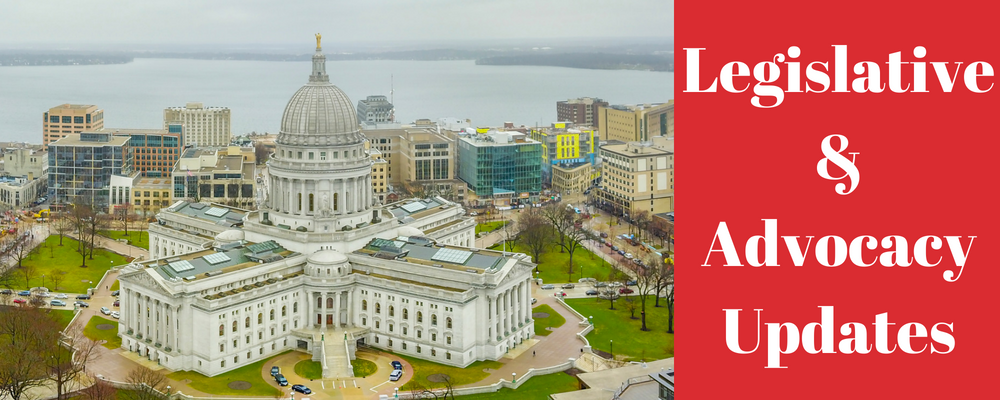
ASCA Position Statement Public Comment
The ASCA Position Statement Committee has revised the following position statements and is seeking public comment. Please share any comments you have for the Position Statement Review Committee by May 16, 2022.
- The School Counselor and Character Education
- The School Counselor and College Access Professionals
- The School Counselor and LGBTQ+ Youth
- The School Counselor and Promotion of Safe Schools through Conflict Resolution and Bullying/Harassment Prevention
- The School Counselor and School-Family-Community Partnerships
- The School Counselor and Students with Disabilities
- The School Counselor and Transgender/Nonbinary Youth
- The School Counselor and Trauma-Informed Practice
To share any comments you might have, visit https://schoolcounselor.org/Standards-Positions/Position-Statements/Position-Statement-Public-Comment
Conference Information & Updates
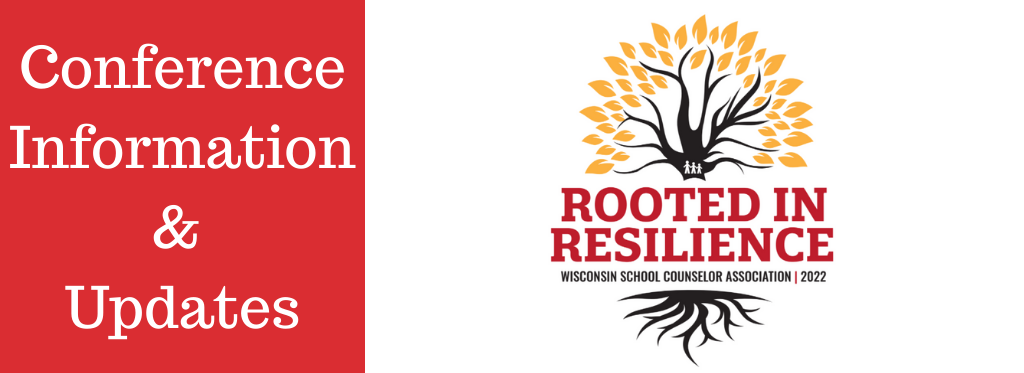
Counselor Connections
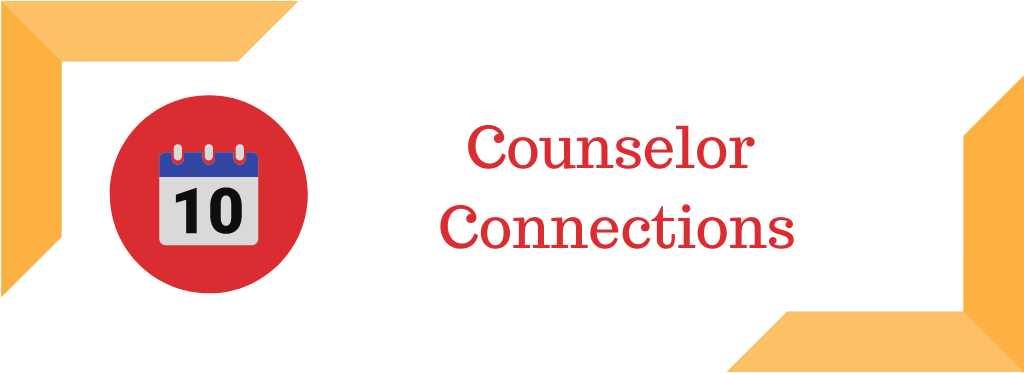
During National School Counseling Week, we received over 60 submissions of counselor appreciation messages from administrators! Take a moment to watch this short clip and the six others on our National School Counseling Week webpage if you need a perk to your mental wellness this month.



